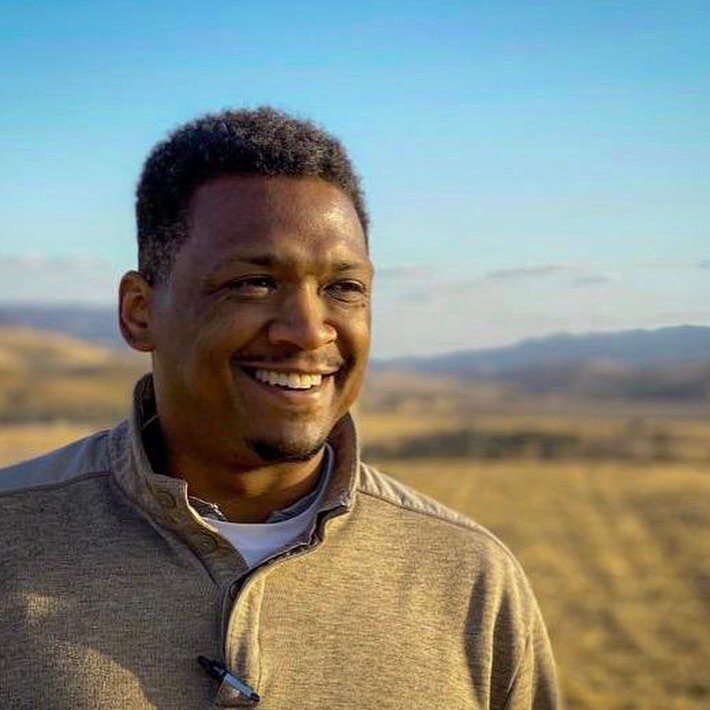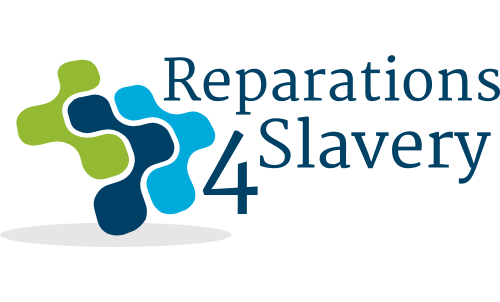Interview with DAVID RAGLAND

R4S: David, what do you know about your family's heritage?
DR: Well, I am originally from St Louis, Missouri. My mother is from Detroit, Michigan. My maternal grandfather was of Gullah Geechee descent, while my maternal grandmother was black and indigenous, though we don't know from what tribe. We do have photos of her with her grandfather.
On my father’s side, we know much less. My father grew up in Tennessee where his parents were sharecroppers.
R4S: Have any stories been passed down over the generations?
DR: Yes. My paternal grandfather, Cleve Ragland Sr., died when my father was just 13. They were sharecroppers.
When he died, the white landowners claimed that money was still owed from his tenant farm. Apparently, this was very common, the white landowners claiming that the sharecroppers owed money or hadn’t fulfilled the terms of their agreement.
Now, my grandfather was a very well-respected man; besides sharecropping, he was also a blacksmith. So, we believe those accusations were fabrications. In any case, they decided to leave Tennessee, the place where my grandfather and my aunts and uncles had all labored on the land. So, they came to St. Louis to join other family members.
Another story that comes to mind: I interviewed my grandmother and her sister before they died, when I was a PhD student and I was looking at religious traditions. Have you heard of ‘the moaner’s bench?’ Well, this bench was a part of West African slave traditions, a combination of traditional African spiritual practices and Christianity. The bench has a hallowed place within the church; there are chants and then miracles happen. Even my own baptism had elements of African ceremony. Those traditions are still a part of the church that my parents go to in St Louis.
R4S: David, how has institutional racism impacted your life?
DR: When I was a preteen, I remember feeling ashamed of my race. I went through a phase where I tried to perm my hair and I even dyed it blonde. I remember thinking something was wrong with me.
Now, I have dark skin, but I have a very light skinned brother; it doesn't even look like we have the same parents. I remember my first time going to a school cross-country practice and someone said, "Why are you so dark? Go home, take a bath!" You know, that was a lot of my experience growing up; people viewing my lighter brother as high achieving and smart and then me, the darker one, automatically viewed as a troublemaker. I also grew up as a really tall kid, and big, and remember being told "how to behave" - how to minimize yourself so that you don't attract attention. My parents also worked on the way we spoke from an early age. They really wanted to help us succeed.
R4S: Was there a turning point for you?
DR: Yes. So, I went to a high school that was devoted to Liberation Theology in St Louis. Cardinal Ritter College Prep High School, named after the catholic cardinal who integrated catholic schools in the U.S., was probably the only college prep high school for African Americans in St. Louis and it had an Afrocentric curriculum. We were taught about black culture, the experience of slavery, and community empowerment. That was the primary focus.
R4S: How did having an Afro-centric education change your perspective?
DR: Once I got to this high school, the teachers helped me get comfortable with who I was. Honestly, being in an all-black environment was great. I felt like I could relax – I just felt normal. Then, I went to a historically black college and had that same experience. It was incredibly liberating.
R4S: How did you become involved with the movement for reparations?
DR: When Mike Brown got killed, I was in St Louis. I was called to be a part of the protest; it was the first time I saw regular people who hadn't been trained, weren't college students, didn't have a formal political education stand up against the system. So, I helped to start a project called the Truth Telling Project of Ferguson.
R4S: You currently head the Grassroots Reparations Campaign. What's the vision for the campaign?
DR: The campaign has two phases, learning in public and then taking action. We like to refer to five dimensions of reparations:
Restitution, rehabilitation, compensation, satisfaction, and guarantees of non-repeat.
Our campaign is built around these ideas.
The vision for the campaign is rooted in a broad understanding that reparations is something the U.S. government owes descendants of slavery. Our position is that reparations needs to be legislated at the national level. But, at the same time, there needs to be acknowledgement that some people have more at stake than others; some individuals, community organizations, and institutions have directly benefited from slaveholding policy. For instance, many industries have their roots in slavery. National finance systems supported it, as did shipbuilders, lumber yards, insurance companies - you name it, nearly every industry was involved in some way.
R4S: Your campaign is centered around work faith communities can do. What activities are planned?
We are convene two national days of reparations for spiritual and faith communities annually, given our conviction that slavery is the original sin of this country that needs healing. We’re encouraging individuals to bring our program to their congregations, so that individuals can consider ways to repair and build their own program of accountability.
We are billing these national days of reparations for spiritual and faith communities, as #Reparation Sundays. So, the idea is each congregation could plan something – services, prayers and readings, even sermons that speak directly to reparations.
R4S: What happens after the #Reparations Sundays?
The goal is that after the service, the community begins creating reparative relationships. Being in relationship is important - folks who are trying to make repair need to find ways to be in relationship with folks who are asking for repair.
R4S: Have any congregations participated? What have they learned?
DR Yes. One of our member churches had created a task force around reparations. They decided that they needed to act, to tell their story about their complicity with slavery, with Jim Crow, with racism in general. But when they reached out to the black community, the black community pushed back and said, “Slow down, you need to be more inclusive, to work with broader groups. Reach out to black grassroots organizations who are doing the work on the ground.”
This process was illuminating for them and it tempered a lot of what they're doing and their plans. Repair is a long-term project, not something to rush into. We’re talking about upwards of 500 years of oppression to deal with; repair cannot be achieved overnight.
R4S: What other areas do white people need to work on?
DR: White people need to learn to not center their own whiteness. For instance, what does it look like to tell your story without centering yourself or your sadness at finding out that your family enslaved people? To center the story of the people your family enslaved, for instance – rather than yourself. That's a difficult dance for many people, but there are resources for doing just that.
R4S: So, how should white families be talking about their history of enslavement?
DR: Well, if you hear that your family has participated in slavery, the initial response is all sorts of guilt, right? Well, a political act might be to acknowledge that white people’s feelings have always been acknowledged first. An act of political solidarity with those who've been harmed would be to lift up their stories, rather than your own. Connect with those who’ve been harmed, help us find our genealogical records. People's lives are missing. For instance, I have no clue about my family’s history. Support black people’s efforts to find their own histories, beyond just gene-testing.
I also think that reparations must be led by and decided by black folks for black folks. Think about it: black folks never, ever have had autonomy. Reparations should be a place where we have autonomy.
R4S: If anyone wishes to become an involved in the campaign, what's the best way to engage?
DR: Begin by taking our pledge. Then, join our community and participate through our webinars and programs. Finally, bring our program to your faith community.
